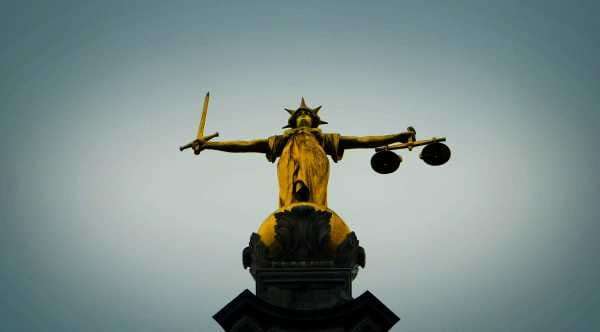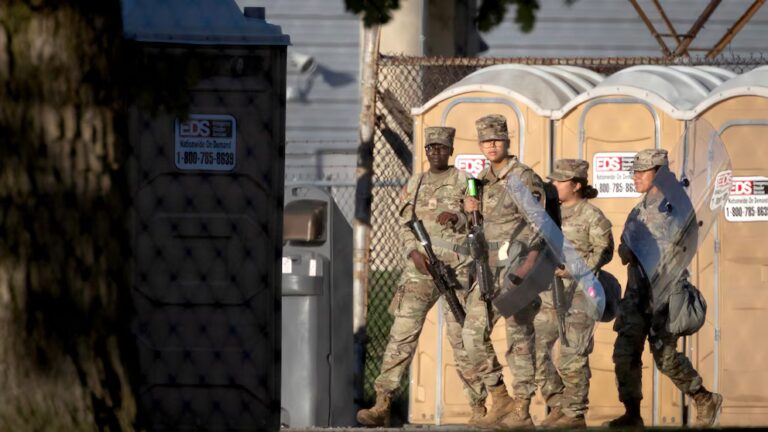
More than five decades after the civil rights movement, Louisiana voters will have a chance to end a Jim Crow law this November.
In the late 19th century, Louisiana was faced with a new constitutional requirement, after the passage of the US Constitution’s 14th Amendment, that it would have to include black people in juries. Since Louisiana required juries to reach unanimous decisions, as is standard, this meant a single black person on the jury would have a lot of power — which would weaken white Louisianans’ hold over the state, its government, and its laws.
The state found a workaround. As part of a constitutional convention in 1898 meant to “perpetuate the supremacy of the Anglo-Saxon race in Louisiana,” it enacted a slew of Jim Crow measures. One of them allowed split juries for felony trials, so the few black jurors could be easily overruled by a white majority.
Today, Louisiana is one of two states that allow split-jury decisions in criminal cases, requiring just 10 of 12 jurors to agree to a verdict in serious felony trials. Oregon is the only other state that allows split juries, but even it requires unanimous verdicts for murder trials.
With this November’s midterm elections, Louisiana voters will have a chance to change that. Amendment 2, a ballot initiative, would require unanimous agreement by jurors for all felony trials.
The ballot measure has drawn wide support, including from the state’s Democratic and Republican Parties — a sign that Louisiana may finally be ready to eliminate a remaining vestige of the Jim Crow era.
What Louisiana’s Amendment 2 would do
Louisiana’s Amendment 2 is pretty straightforward: It would require unanimous decisions for felony trials. It wouldn’t be retroactive, instead taking effect only for cases after January 1, 2019. The state legislature passed a bill, with bipartisan support, to put the issue on the ballot.
There is no public polling on Amendment 2, so it’s hard to gauge voter support for it.
But it does have a lot of official support. The state’s Democratic Party and Republican Party back it. So does Democratic Gov. John Bel Edwards. And various organizations all over the political spectrum, from the American Civil Liberties Union to the Koch-backed Americans for Prosperity of Louisiana, have endorsed it.
The measure would bring Louisiana in line with the unanimity rule that’s accepted in every other state but Oregon. Not only that, supporters say, but it would move Louisiana — which has the second-highest incarceration rate in the US — closer to the basic legal standard of “beyond a reasonable doubt.”
As former prosecutor and Amendment 2 supporter Ed Tarpley said, “How can you say a person has been convicted and found guilty beyond a reasonable doubt when one or two of the jurors says, ‘No, I have reasonable doubt’?”
Amendment 2, meanwhile, has drawn very little criticism. So far, no campaign has formally formed against it.
In fact, those who have been critical of it have seemingly walked back criticisms. I reached out to Louisiana Attorney General Jeff Landry (R) and Pete Adams, executive director of Louisiana District Attorneys Association, after seeing reports in which they were critical of Amendment 2. Landry’s office told me that he “is not opposed to the second amendment” and shortly after stopped responding to my requests for clarification. Adams said the Louisiana District Attorneys Association “has no position on the proposed amendment” and that “there is little to say except that we have no position.”
One criticism that was made by the Louisiana District Attorneys Association, though, was that Amendment 2 would make Louisiana’s criminal justice system less efficient. As lawmakers considered allowing Amendment 2 to go on the ballot, Adams said, “In today’s society, getting 80 percent of people in any group to agree on any topic is a phenomenal task. Everyone’s in their corner. More so than ever, people take their agendas into the courtroom. You’re inviting jury nullification.” (This is the same kind of argument supporters of non-unanimous juries have been making for decades.)
Supporters of Amendment 2 push back against the criticism, arguing that the requirement for unanimity makes jurors more careful and deliberate, which is important to making sure the right person is being convicted of a crime.
“If the rule requires unanimity, you can’t simply throw out people who may see the evidence differently,” Alanah Odoms Hebert, executive director of the ACLU of Louisiana, told me. “You have to consider that. You have to really grapple with the evidence in a way that you wouldn’t have to if you could completely ignore the votes of two people.” She added, “Because you have diversity of thought, diversity of opinion, and further, deeper consideration, it does lead to better decisions.”
Besides, 48 other states in the country require unanimous juries. Are these other criminal justice systems irredeemably broken as a result? Do they work worse than Louisiana’s? There’s no evidence to support either of those possibilities.
If anything, the data suggests the opposite. Louisiana has consistently reported the highest murder rate in the country — at 11.8 per 100,000 people in 2016, compared to a national rate of 5.3. So Louisiana’s criminal justice system doesn’t seem to be doing a very good job keeping people safe.
The original intent of Louisiana’s non-unanimous jury law was also not efficiency or effectiveness. It was racism, pure and simple.
The racist history behind Louisiana’s use of non-unanimous juries
“This was part of the 1898 constitutional convention, which is famous for disenfranchising black voters,” Lawrence Powell, a historian at Tulane University in New Orleans, told me. “It was also around the time of the Plessy [v. Ferguson] case that just got sanction from the US Supreme Court for racial segregation. It’s all part of that mix.”
After the Civil War, the 14th Amendment prohibited racial discrimination under the law. As a result, black people, recently freed from slavery, were allowed to serve on juries.
White Louisianans were not happy about this. They worried that black jurors would dilute white power and white supremacist policies in the state — including plans to supplant the loss of slave labor with black convict labor through black codes, convict leasing, and chain gangs. So Louisiana held a constitutional convention that, among other changes, allowed partial jury decisions.
There isn’t much data on how non-unanimous juries actually work in Louisiana. But the data we do have suggests a disproportionate racial impact.
The New Orleans Advocate summarized its review of nearly 1,000 jury convictions over six years: “The newspaper’s analysis found that 40 percent of trial convictions … came over the objections of one or two holdouts. When the defendant was black, the proportion went up to 43 percent, versus 33 percent for white defendants.”
So how has this law — a blatant remnant of the Jim Crow era — remained on the books?
For one, the US Supreme Court has allowed non-unanimous juries, most notably in 1972’s Johnson v. Louisiana and Apodaca v. Oregon. The rulings remain today.
The other issue is that Louisiana’s law can now be spun to be not about race, but about efficiency.
“They didn’t use raw, racist language in the debates to justify the non-unanimous jury rule,” Powell said, even though “the whole constitutional convention was marinating in this kind of racist fluid.”
This is emblematic of how systemic racism works in America: Because policies seem racially neutral at face value, they slide under the radar even if in reality they result in racially disparate outcomes. There are all sorts of policies that we know have racially uneven outcomes — drug laws, traffic rules, voter ID requirements — but because they don’t explicitly invoke race, their supporters can argue that racism isn’t their intent.
The same applies to the non-unanimous jury rule. Louisiana’s law, in and of itself, does not mention race; it’s simply a law about how juries are structured and reach decisions. Even if it has a racially disproportionate impact, supporters of the law can say that anything related to race isn’t their intent, regardless of the law’s history. So it remains on the books.
Eventually, though, the reality of how laws work on the ground catches up with the laws themselves. We’ve seen that over the past few years, as criminal justice reformers have called for an end to the war on drugs, mass incarceration, and police brutality, citing racial disparities in the criminal justice system. Even in a very conservative state like Louisiana, the reality of systemic racism now seems harder to avoid — and it may lead to the end of its non-unanimous jury law this November.
Sourse: vox.com






